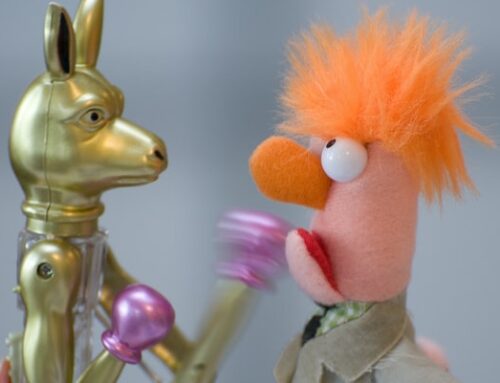 There are times that I don’t always show up as my best self. I’m sure if you ask my husband, Todd, he’ll tell you that there are many more times than I care to admit, that a lesser version of myself shows up. Just like all of us, I can get stressed or be in a bad mood and then I don’t always act in the most loving of ways. None of us gets through life without hurting the people we love (intentionally or not), doing things we regret later, and acting in ways, large or small, that show ourselves as the imperfect human beings that we all are. Here’s where the apology comes in. “I’m sorry” are two of the most important words you can say if you love other people and want to keep your relationships.
There are times that I don’t always show up as my best self. I’m sure if you ask my husband, Todd, he’ll tell you that there are many more times than I care to admit, that a lesser version of myself shows up. Just like all of us, I can get stressed or be in a bad mood and then I don’t always act in the most loving of ways. None of us gets through life without hurting the people we love (intentionally or not), doing things we regret later, and acting in ways, large or small, that show ourselves as the imperfect human beings that we all are. Here’s where the apology comes in. “I’m sorry” are two of the most important words you can say if you love other people and want to keep your relationships.
Harriet Lerner, one of the most respected voices in psychology today, is the author of a book called Why Won’t you Apologize? In it she talks about the importance of apologies, how to deliver and accept an apology, and what gets in the way of doing them right. I highly recommend that you read it.
She says that the best way to respond to an apology is to say, “thank you for the apology, I appreciate it”—or words similar to that. Most of us typically say, “that’s okay,” in response to an apology. That is not only unnecessary but also is something that we shouldn’t say. It’s not okay that someone hurt us, even if unintentionally, but it is okay to appreciate their trying to make amends.
According to Lerner, there are 9 essential ingredients of a true apology:
- Does not include the word ‘but’. Whatever follows the ‘but’ is a justification or an excuse. The ‘but’ cancels the apology out. It makes your apology false. An example: “I’m sorry that I yelled at you this morning but if you wouldn’t have rushed me I wouldn’t have done it.”
- Keeps the focus on your actions and not on the other person’s response. There is no accountability when you say something like “I’m sorry you felt hurt.” You need to be sorry for your action. Apologize for what you have said or done.
- Includes an offer of reparation or restitution that fits the situation. Offer to make amends. “I’m so sorry I lost your scarf. I will buy you a new one.” – and then do it.
- Does not over do. There are 2 kids of overdoing. The first is apologizing for every little thing in a way that is over the top. Don’t apologize like you’ve run over your friend’s kitten when you just forgot to return her Tupperware. The second kind of overdoing is when you apologize for something you’ve done in a way that then causes the hurt party to have to look after you. An example is a daughter telling her mother that she was upset that the mother was late to pick her up from school, and the mother responding in an over the top way that she is such a bad mother and how she feels so horrible that she is a bad mother. This then causes the daughter to have to look after her mother’s pain. In other words, her own pain was hijacked and the mother never actually addressed it.
- Doesn’t get caught up in who is more to blame or who started it. A recipe for relationship failure is to wait for the other person to change or apologize first. This rule means apologize for the part that you can see is yours to own even if it is small. Try to be your best self especially when your partner is being the biggest jerk.
- Requires that you do your best to avoid a repeat performance. Don’t apologize and then just continue to do what hurt your partner in the first place. It can be hard to modify habitual styles of relating.
- Should not serve to silence the other person. “I’ve said I’m sorry a hundred times. Let’s not bring it up again.” Often we use an apology to silence an uncomfortable conversation. This isn’t okay.
- Should not be offered to make you feel better if it risks making the hurt party feel worse. An apology is not to help soothe you. Be respectful of the other person if they don’t want to hear from you. An example of this is when a couple breaks up and the hurt party says they don’t want to hear from the other person, yet that person continues to hound them through emails, social media, texts, etc. about how sorry they are and can they please talk to them. Give the person space if they ask for it.
- Does not ask the hurt party to do anything, not even to forgive. An apology is not a bargaining tool where we get something in return. An apology is not an end to a conversation. An apology is supposed to de-intensify a situation so we can move forward. Apology is about giving not getting something back.
The better and quicker you and your partner are at making repairs after a rupture in your relationship, the more likely your relationship is to be successful and long lasting. Knowing how to offer sincere apologies is a key component of this. After all, we are all imperfect human beings and mess up from time to time.





Leave A Comment